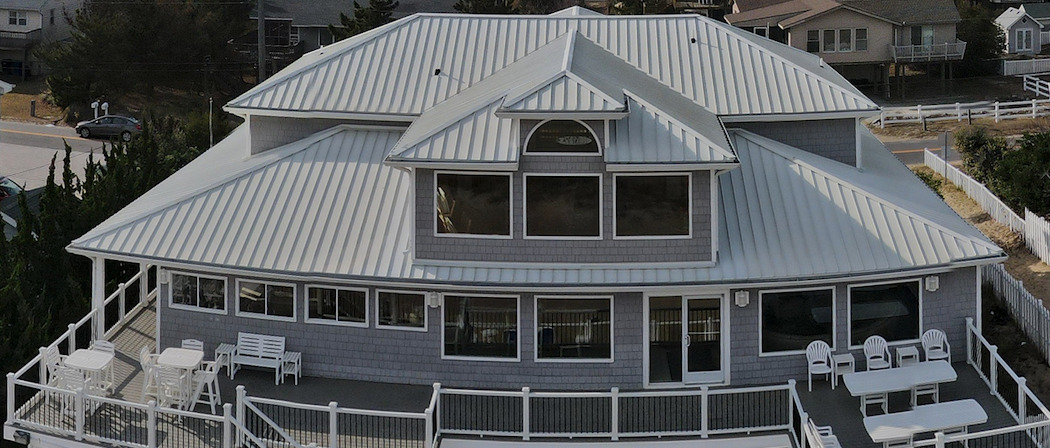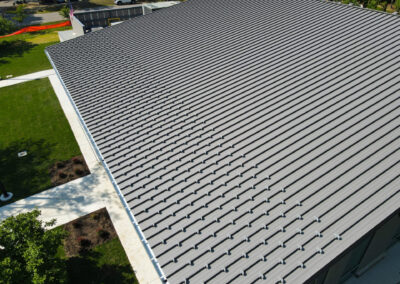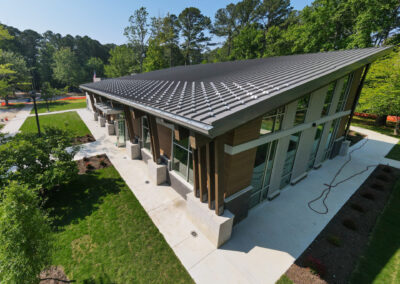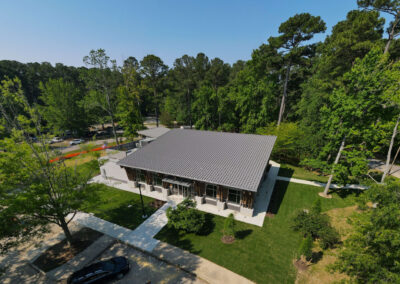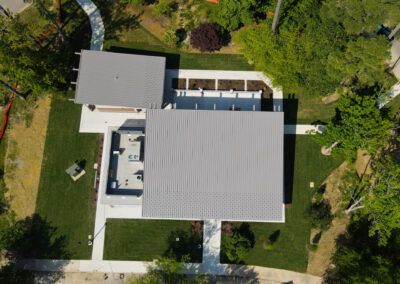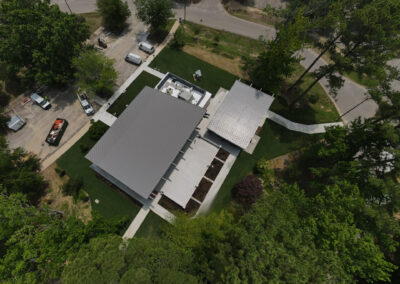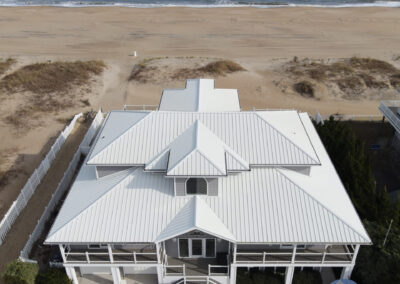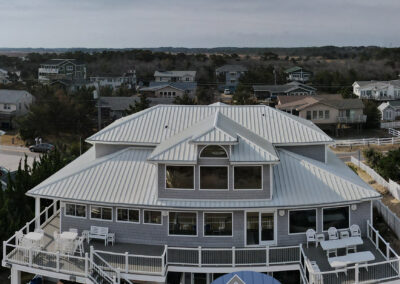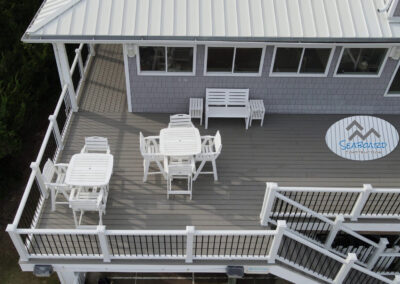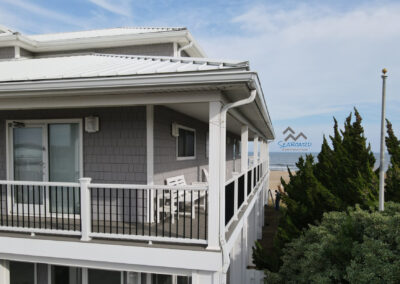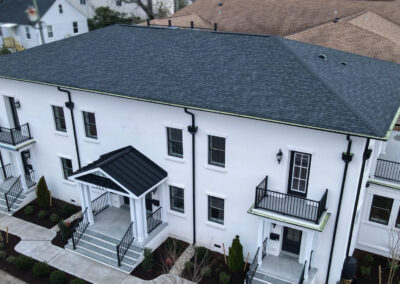Virginia Metal Roofing Company
Local Metal Roofers
Call now 757-210-6580
Experience the Highest Quality Standing Seam Metal Roofing in Hampton Roads with Seaboard Construction
Choosing the right company for your standing seam metal roofing is crucial, and Seaboard Construction is the premier choice in the Hampton Roads area. Our unwavering commitment to customer satisfaction and exceptional craftsmanship sets us apart from other metal roofing companies in Norfolk, Chesapeake, Virginia Beach, Newport News, and beyond.
What sets us apart from the rest? We take great pride in our in-house fabrication and forming of metal roofing panels. This gives us complete control over the process, ensuring unparalleled precision and excellence in every panel. Our highly experienced team of metal roofers pays meticulous attention to detail, guaranteeing installations that consistently exceed the highest standards.
As a local metal roofing company, we understand the unique needs and challenges of the Hampton Roads area. We have established a solid reputation for our professionalism, reliability, and outstanding customer service. When you choose Seaboard Construction as your roofing company, you can be confident that your standing seam metal roof will be installed with the exceptional care and expertise it deserves.
To further prioritize your satisfaction, we offer a comprehensive 2-year craftsmanship warranty on all installed standing seam metal roofs. This warranty provides you with peace of mind, knowing that any defects or issues arising from our workmanship will be promptly addressed and resolved.
Ready to experience the excellence and customer satisfaction that distinguishes Seaboard Construction? Contact us today to discuss your project and discover how we can fulfill your metal roofing needs in the Hampton Roads region.
Reach out to our team of expert metal roofing contractors today for a complimentary roof inspection!
Seaboard Construction is a Class A Certificated contractor specializeing in commercial and residential roofing solutions in Hampton Roads.
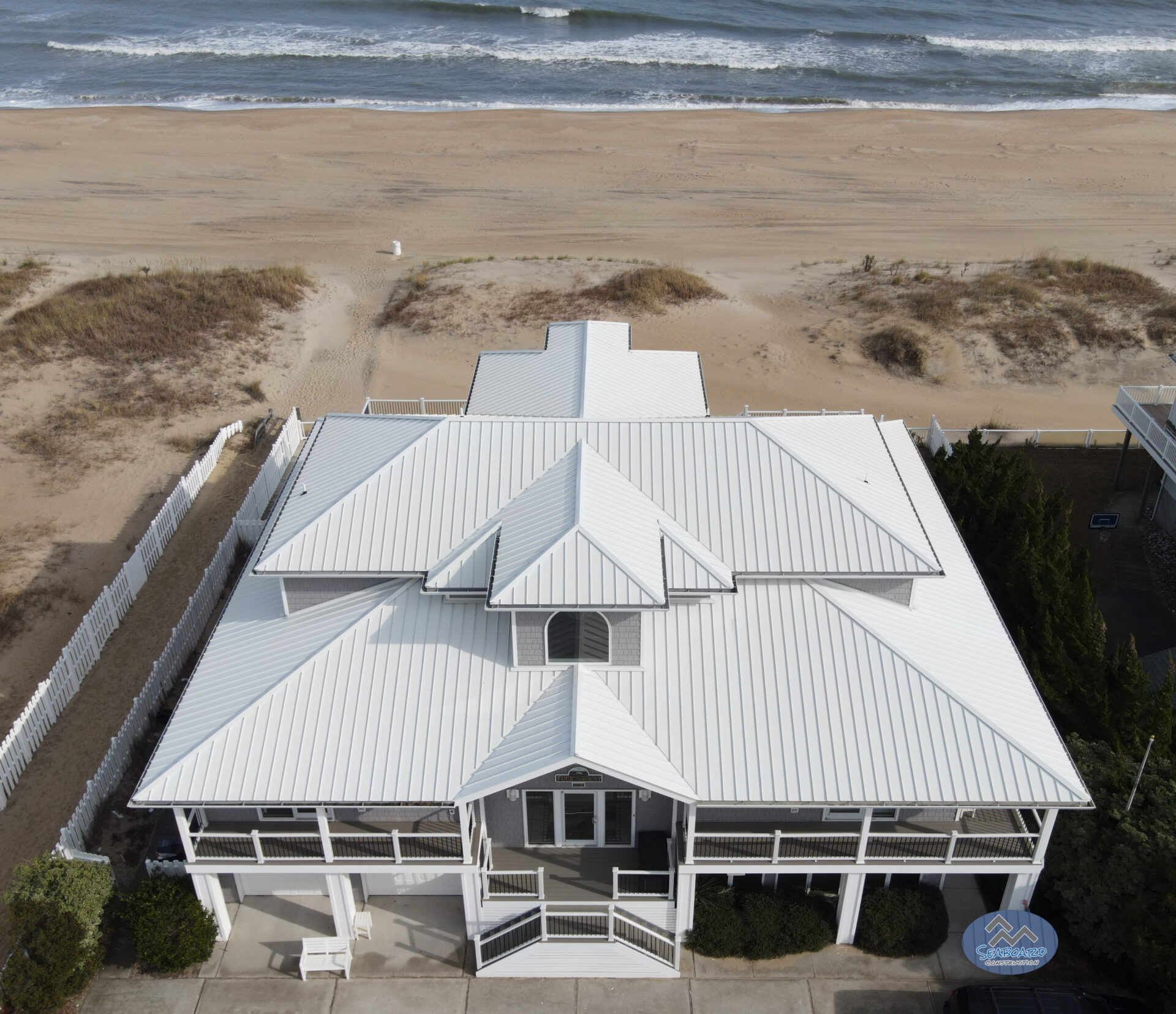
Standing Seam Metal Roof Gallery
Call 757-210-6580
Myth Busted: Do Metal Roofs Weaken Wifi & Cell Signals?
In this article we’ll review why metal roofs to not reduce cell and Wifi signals:
- Debunking the myth that metal roofs weaken Wifi and cell signals.
- Understanding the benefits of metal roofs, including durability, longevity, and energy efficiency.
- Exploring the behavior of wireless signals and their impact on metal roofs.
- Scientific evidence and expert opinions confirming that metal roofs do not significantly affect Wifi or cell signals.
- Factors affecting wireless signals in residential settings, such as building materials and interior construction.
- Comparing metal roofs to other roofing materials regarding their impact on wireless signals.
- Addressing common concerns and solutions to improve Wifi coverage in homes with metal roofs.
- Enhancing cell signal strength in buildings with metal roofs using signal boosters and Wi-Fi calling options.
- Summarizing the evidence and expert opinions to debunk the myth about metal roofs and wireless signals.
- Reaffirming the advantages of metal roofs, including durability, longevity, energy efficiency, and aesthetic appeal.
- Answering the question: “Do metal roofs affect Wifi?” – Metal roofs do not significantly affect Wifi or cell signals, and homeowners can confidently choose a metal roof without concerns about signal interference.
Common misconception regarding the impact of metal roofs on wireless signals:
One common misconception among homeowners is that metal roofs can weaken Wifi and cell signals within the house. This belief stems from the assumption that metal acts as a barrier, blocking or interfering with wireless communication. However, it is important to address this misconception and provide accurate information to homeowners who may be considering metal roofs for their homes. By debunking this myth, homeowners can make informed decisions based on facts rather than misinformation.
Overview of metal roofs and their benefits:
Metal roofs have gained popularity for their exceptional durability, longevity, and energy efficiency. They offer superior protection against the elements and can withstand harsh weather conditions. Metal roofs are also known for their aesthetic appeal, offering a modern and sleek look to homes. Additionally, metal roofs are environmentally friendly, as they are often made from recycled materials and can be recycled at the end of their lifespan. By highlighting these benefits, homeowners can gain a better understanding of the advantages of metal roofs and why they are a popular choice for many homeowners.
Debunking the myth that metal roofs weaken Wifi and cell signals:
In this blog post, we aim to debunk the myth that metal roofs weaken Wifi and cell signals. We will explore the science behind wireless communication and the actual impact of metal roofs on Wifi and cell signals. By providing accurate information and addressing this misconception, we aim to equip homeowners with the knowledge they need to make informed decisions about their roofing options.
Understanding Metal Roofs
Metal roof basics:
Metal roofs are roofing systems constructed using various types of metal, such as steel, aluminum, or copper. They consist of large metal panels or shingles that are installed on the roof structure. Metal roofs are known for their exceptional durability and strength, making them highly resistant to weathering and damage from elements such as rain, wind, and hail. They have a long lifespan, often lasting 50 years or more with proper maintenance. Metal roofs are available in a range of styles and finishes, allowing homeowners to achieve their desired aesthetic appearance.
Advantages of metal roofs over other roofing materials:
Durability and longevity:
One of the primary advantages of metal roofs is their exceptional durability and longevity. Metal roofs are highly resistant to cracking, warping, and rotting, which are common issues with other roofing materials. They can withstand extreme weather conditions, including heavy rain, high winds, and snow, without compromising their structural integrity. With proper installation and maintenance, metal roofs can provide long-lasting protection for a homeowner’s investment.
Energy efficiency and sustainability:
Metal roofs are renowned for their energy efficiency. They have high reflectivity, which helps to minimize heat absorption from the sun, reducing the workload on cooling systems and contributing to lower energy bills. Additionally, metal roofs can be installed with insulation materials, further enhancing their energy-saving properties. Metal roofs are also environmentally friendly as they are often made from recycled materials and can be fully recycled at the end of their lifespan. This makes them a sustainable choice for homeowners looking to reduce their environmental footprint.
Aesthetic appeal and design versatility:
Metal roofs offer a wide range of aesthetic options and design versatility. They are available in various styles, profiles, and finishes, allowing homeowners to choose a look that complements their architectural style and personal taste. Whether it’s a traditional, contemporary, or modern design, metal roofs can enhance the curb appeal of a home. Additionally, metal roofs can be painted or coated in different colors, enabling homeowners to achieve their desired aesthetic vision.
By highlighting the durability, longevity, energy efficiency, sustainability, aesthetic appeal, and design versatility of metal roofs, homeowners can better understand the advantages of choosing a metal roof over other roofing materials.
Exploring the Myth: Do Metal Roofs Affect Wifi?
Understanding wireless signals and their behavior:
To address the myth that metal roofs affect Wifi signals, it is essential to have a basic understanding of how wireless signals work. Wifi signals operate in the radio frequency range, typically around 2.4 GHz or 5 GHz. These signals travel in waves and can pass through different materials, including walls, windows, and even some metal surfaces. However, the behavior of wireless signals can be influenced by factors such as distance, obstructions, and signal strength.
By understanding these principles, we can evaluate the impact, if any, that metal roofs may have on Wifi signals.
Debunking the misconception with scientific evidence:
Scientific studies and research have been conducted to determine the actual impact of metal roofs on Wifi signals. These studies consistently show that properly installed metal roofs do not significantly affect Wifi or cell signals within the home. The metal used in roofing materials, such as steel, do not block or absorb Wifi signals to a degree that would cause noticeable signal degradation. Furthermore, the Federal Communications Commission (FCC) sets guidelines and regulations to ensure that electronic devices, including Wifi systems, operate within safe and interference-free limits. These regulations help ensure that metal roofs do not interfere with Wifi signals in a significant or disruptive manner.
By presenting scientific evidence from studies and research, as well as the regulations set by the FCC, we can confidently debunk the misconception that metal roofs adversely affect Wifi signals. Homeowners can rest assured that choosing a metal roof for their home will not result in any significant Wifi signal degradation or interference.
Factors Affecting Wireless Signals in Residential Settings
Building materials and signal attenuation:
When considering the impact of different roofing materials on wireless signals, it is important to understand the concept of signal attenuation. Signal attenuation refers to the reduction in signal strength as it travels through various materials. Some building materials, including certain types of roofing materials, can have a slight effect on the signal strength. However, it is essential to note that this impact is generally minimal and can be mitigated by the design and placement of Wifi equipment within the home. Comparing different roofing materials, such as metal, asphalt shingles, or clay tiles, can help homeowners gain an understanding of any potential variations in signal attenuation they may experience.
Insulation and interior construction:
Another factor influencing wireless signals within residential settings is insulation and interior construction. Insulation materials, such as foam or fiberglass, can affect signal penetration. However, this impact is typically more significant for lower frequency signals, such as those used by AM/FM radios, rather than higher frequency Wifi signals. Additionally, interior walls, furniture, and other objects can impact the propagation of wireless signals. These objects may obstruct the signal path or cause signal reflection, resulting in areas of weaker signal strength. However, proper placement of Wifi routers, repeaters, or extenders can help ensure optimal signal coverage throughout the home, mitigating any potential challenges posed by interior construction.
Comparing Metal Roofs to Other Roofing Materials
Asphalt shingles vs. metal roofs:
Wireless signal behavior with asphalt shingle roofs:
Asphalt shingles, one of the most common roofing materials, have a minimal impact on wireless signals within residential settings. The composition of asphalt shingles, typically made of fiberglass or organic matting covered with asphalt and mineral granules, allows wireless signals to pass through with little attenuation. The signal strength is generally unaffected, and homeowners should experience reliable Wifi and cell signals even with an asphalt shingle roof.
Contrasting metal roofs’ impact on signals:
In comparison to asphalt shingles, metal roofs have a similar, if not better, impact on wireless signals. Metal roofs, such as standing seam metal roofs, do not act as a complete barrier to Wifi or cell signals. While metal is generally more reflective than other materials, Wifi signals can still penetrate metal roofs with minimal signal attenuation. With proper placement of Wifi equipment and the use of signal amplifiers or repeaters, homeowners can maintain strong wireless connections throughout their homes, even with a metal roof.
Clay and concrete tiles:
Signal penetration and reflection in tile roofs:
Clay and concrete tiles are known for their durability and aesthetic appeal. In terms of wireless signals, these roofing materials may have a slightly greater impact compared to metal roofs. Due to the denser and thicker nature of clay and concrete tiles, wireless signals may experience some attenuation and reflection when passing through these materials. However, the impact is generally minimal and can be mitigated by ensuring proper Wifi equipment placement and coverage within the home.
Comparing signal behavior with metal roofs:
Metal roofs, on the other hand, offer comparable or better signal behavior compared to clay and concrete tiles. While metal is a reflective material, it does not significantly impede wireless signals. With metal roofs, homeowners can enjoy reliable Wifi and cell signals within their homes without experiencing any significant signal degradation or interference.
Wood shakes and shingles:
Wireless signal behavior in wood roofs:
Wood shakes and shingles, although aesthetically appealing, may have a slight impact on wireless signals. Wood is a denser material than asphalt shingles or metal, which can result in minimal signal attenuation. However, this impact is typically minor and can be addressed by optimizing the placement of Wifi equipment within the home.
Advantages of metal roofs in terms of signal strength:
Standing seam metal roofs provide advantages in terms of signal strength compared to wood roofs. With their reflective properties and minimal signal attenuation, metal roofs offer a reliable environment for wireless signals. Homeowners can enjoy strong Wifi and cell signals throughout their homes, ensuring consistent connectivity and communication.
By comparing the impact of different roofing materials on wireless signals, it becomes clear that metal roofs, including standing seam or corrugated metal roofs, offer reliable signal strength, comparable to or even better than other roofing materials such as asphalt shingles, clay and concrete tiles, and wood shakes and shingles.
Addressing Common Concerns and Solutions with Metal Roofs & Wifi Coverage
Call now 757-210-6580
Metal Roofers in Virginia
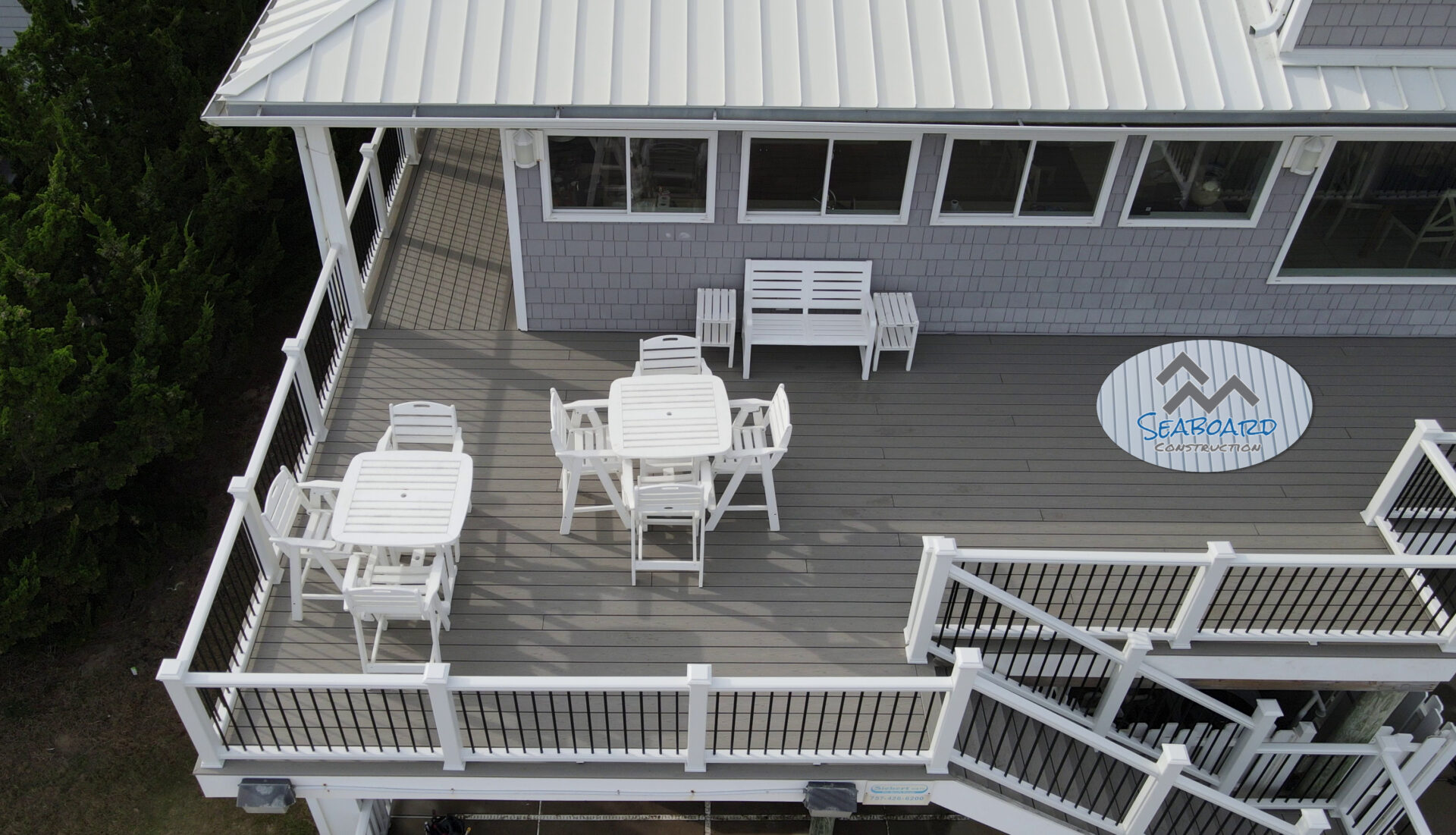
Virginia Beach Metal Roofing Company
Improving Wifi coverage in homes with metal roofs:
Router placement and signal amplification techniques:
To ensure optimal Wifi coverage in homes with metal roofs, strategic router placement is essential. Placing the Wifi router on the upper floor or ceiling can help improve signal propagation throughout the home. Additionally, using signal amplification techniques such as high-gain antennas or signal boosters can extend the range and strengthen the Wifi signal, compensating for any minor signal attenuation that may occur due to the metal roof.
Wi-Fi range extenders and mesh networking systems:
For larger homes or areas with challenging Wifi coverage, Wi-Fi range extenders or mesh networking systems can be beneficial. These devices work by extending the Wifi signal range and creating a seamless network across multiple access points. By strategically placing these devices throughout the home, homeowners can eliminate any potential weak spots caused by the metal roof and ensure consistent Wifi coverage in every corner.
Enhancing cell signal strength in buildings with metal roofs:
Using signal boosters and repeaters:
For improved cell signal strength in buildings with metal roofs, signal boosters and repeaters are effective solutions. Signal boosters capture the existing cell signal, amplify it, and retransmit it within the building. This helps overcome any minor signal attenuation caused by the metal roof. By strategically placing signal boosters or repeaters, homeowners can enjoy strong and reliable cell signals throughout their properties.
Wi-Fi calling and VoLTE (Voice over LTE) options:
Wi-Fi calling and VoLTE (Voice over LTE) services provide alternative options for making calls and sending text messages over a Wifi connection instead of relying solely on cellular networks. With a metal roof potentially causing minor signal attenuation, utilizing these features on compatible devices can ensure uninterrupted communication within the building. Enabling Wi-Fi calling and VoLTE options can provide a seamless experience, regardless of any potential minor signal interference caused by the metal roof.
By implementing these solutions, homeowners can address any concerns about Wifi coverage and cell signal strength in buildings with metal roofs. These techniques and technologies help overcome any minor signal attenuation caused by the metal roof, ensuring reliable and consistent wireless communication throughout the property.
Myth Busted: The Truth about Metal Roofs and Wireless Signals
Summarizing the evidence and expert opinions:
By summarizing the scientific evidence, studies, and expert opinions presented earlier in the blog post, it becomes evident that metal roofs do not significantly affect Wifi or cell signals. The studies consistently show that properly installed metal roofs do not impede wireless signals to a degree that would cause noticeable signal degradation. Expert opinions from reputable sources, such as the Federal Communications Commission (FCC), further support this conclusion. By summarizing the evidence and expert opinions, readers can gain confidence in the debunking of the myth that metal roofs weaken Wifi and cell signals.
Reaffirming the advantages of metal roofs:
Reaffirming the advantages of metal roofs is crucial in dispelling the myth about their impact on wireless signals. Metal roofs offer exceptional durability, longevity, energy efficiency, and aesthetic appeal. These advantages make them a popular choice for homeowners seeking a reliable and sustainable roofing solution. By highlighting these benefits, readers can understand that the advantages of metal roofs far outweigh any potential concerns regarding wireless signals.
Answering the question: “Do metal roofs affect Wifi?”:
Based on the scientific evidence, expert opinions, and the advantages of metal roofs, it is safe to answer the question: metal roofs do not affect Wifi or cell signals to a significant extent. The studies and research consistently show that properly installed metal roofs do not impede wireless signals in a way that would cause noticeable signal degradation. With proper placement of Wifi equipment and the use of signal amplifiers or repeaters, homeowners can maintain strong and reliable wireless connections throughout their homes, even with a metal roof. Therefore, homeowners can confidently choose a metal roof without concerns about its impact on Wifi or cell signals.
Call now 757-210-6580
Metal Roofers in Virginia
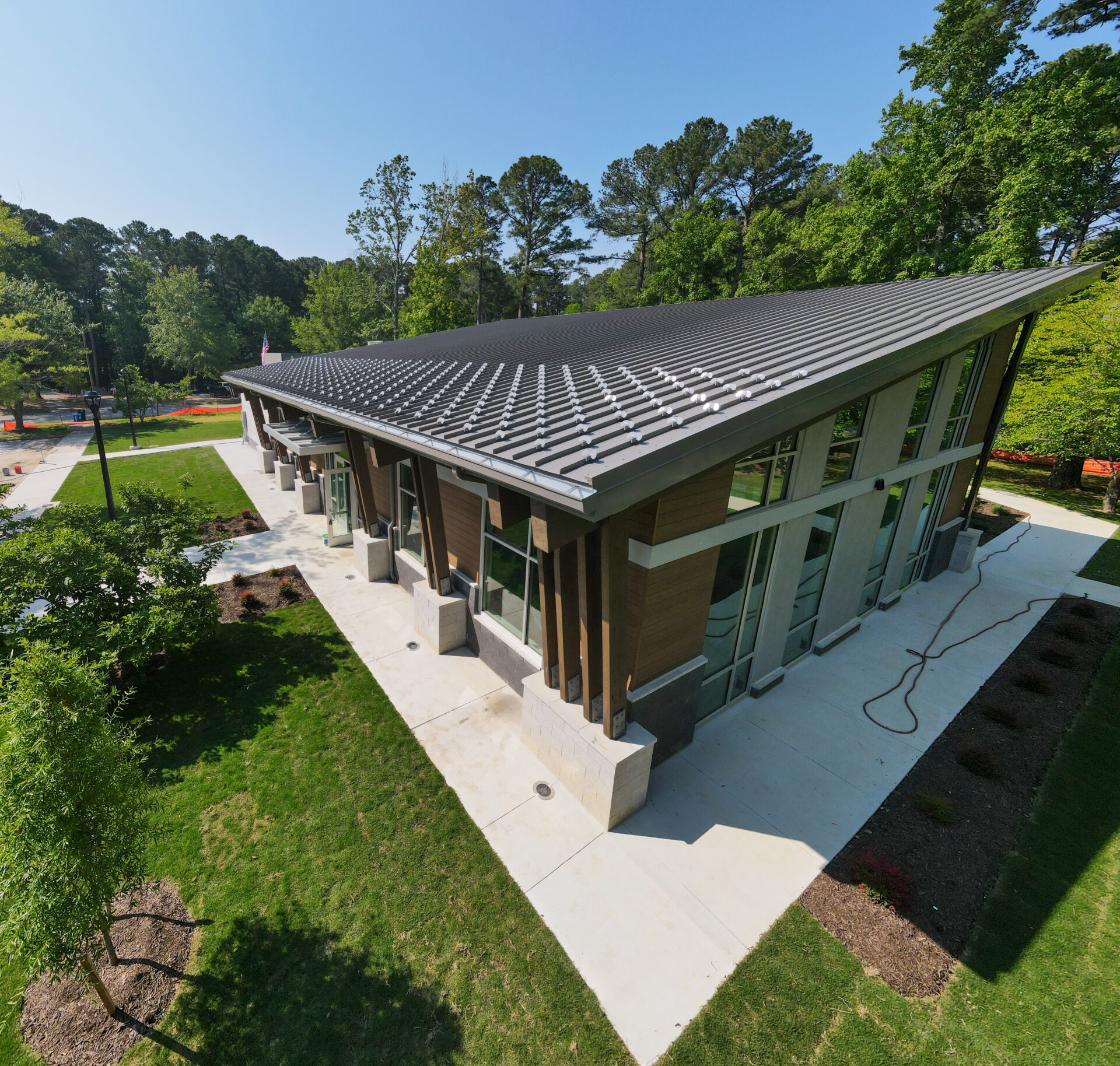
Schedule A Roof Inspection
Call 757-210-6580 or fill out our form
Licensed & Insured Class A Contractor
Hours & Address
Hours
MONDAY – SUNDAY
7:00am – 6:00pm

